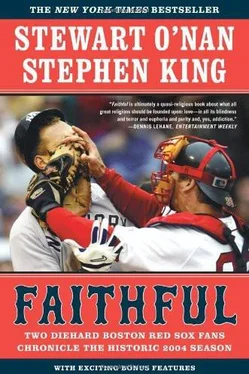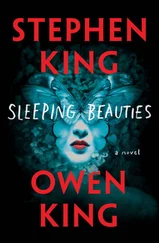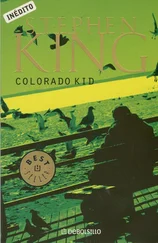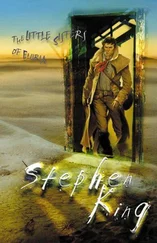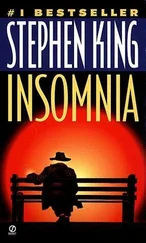Stephen King - Faithful
Здесь есть возможность читать онлайн «Stephen King - Faithful» весь текст электронной книги совершенно бесплатно (целиком полную версию без сокращений). В некоторых случаях можно слушать аудио, скачать через торрент в формате fb2 и присутствует краткое содержание. Город: New York, Год выпуска: 2004, ISBN: 2004, Издательство: Scribner, Жанр: Спорт, на английском языке. Описание произведения, (предисловие) а так же отзывы посетителей доступны на портале библиотеки ЛибКат.
- Название:Faithful
- Автор:
- Издательство:Scribner
- Жанр:
- Год:2004
- Город:New York
- ISBN:978-0-7432-7244-5
- Рейтинг книги:4 / 5. Голосов: 1
-
Избранное:Добавить в избранное
- Отзывы:
-
Ваша оценка:
Faithful: краткое содержание, описание и аннотация
Предлагаем к чтению аннотацию, описание, краткое содержание или предисловие (зависит от того, что написал сам автор книги «Faithful»). Если вы не нашли необходимую информацию о книге — напишите в комментариях, мы постараемся отыскать её.
Amazon.com Review
Fans watching the 2004 baseball playoffs were often treated to shots of Stephen King sitting in the stands, notebook in hand. Given the bizarre events on the field, from the Red Sox’s unprecedented comeback against their most hated rivals to their ace pitcher’s bleeding, stitched-together ankle--not to mention the Sox’s first championship in 86 years--you could be forgiven for thinking King was writing the script as he went along, passing new plot twists down to the dugouts between innings.
What he was writing, though, along with his friend and fellow novelist Stewart O’Nan, was Faithful, a diary of the 2004 Red Sox season. Faithful is written not from inside the clubhouse or the press room, but from the outside, from the stands and the sofa in front of the TV, by two fans who, like the rest of New England, have lived and died (mostly died) with the Sox for decades. From opposite ends of Red Sox Nation, King in Maine and O’Nan at the border of Yankees country in Connecticut, they would meet in the middle at Fenway Park or trade emails from home about the games they’d both stayed up past midnight to watch. King (or, rather, “Steve”) is emotional, O’Nan (or “Stew”) is obsessively analytical. Steve, as the most famous Sox fan who didn’t star in Gigli, is a folk hero of sorts, trading high fives with doormen and enjoying box seats better than John Kerry’s, while Stew is an anonymous nomad, roving all over the park. (Although he’s such a shameless ballhound that he gains some minor celebrity as "Netman" when he brings a giant fishing net to hawk batting-practice flies from the top of the Green Monster.)
You won’t find any of the Roger Angell-style lyricism here that baseball, and the Sox in particular, seem to bring out in people. (King wouldn’t stand for it.) Instead, this is the voice of sports talk radio: two fans by turns hopeful, distraught, and elated, who assess every inside pitch and every waiver move as a personal affront or vindication. Full of daily play-by-play and a season’s rises and falls, Faithful isn’t self-reflective or flat-out funny enough to become a sports classic like Fever Pitch, Ball Four, or A Fan’s Notes, but like everything else associated with the Red Sox 2004 season, from the signing of Curt Schilling to Dave Roberts’s outstretched fingers, it carries the golden glow of destiny. And, of course, it’s got a heck of an ending. —Tom Nissley From Publishers Weekly
Of all the books that will examine the Boston Red Sox’s stunning come-from-behind 2004 ALCS win over the Yankees and subsequent World Series victory, none will have this book’s warmth, personality or depth. Beginning with an e-mail exchange in the summer of 2003, novelists King and O’Nan started keeping diaries chronicling the Red Sox’s season, from spring training to the Series’ final game. Although they attended some games together, the two did most of their conversing in electronic missives about the team’s players, the highs and lows of their performance on the field and the hated Yankees (“limousine longballers”). O’Nan acts as a play-by-play announcer, calling the details of every game (sometimes quite tediously), while King provides colorful commentary, making the games come alive by proffering his intense emotional reactions to them. When the Red Sox find themselves three games down during the ALCS, King reflects on the possibilities of a win in game four: “Yet still we are the faithful… we tell ourselves it’s just one game at a time. We tell ourselves the impossible can start tonight.” After the Sox win the Series, O’Nan delivers a fan’s thanks: “You believed in yourselves even more than we did. That’s why you’re World Champions, and why we’ll never forget you or this season. Wherever you go, any of you, you’ll always have a home here, in the heart of the Nation.” (At times, the authors’ language borders on the maudlin.) But King and O’Nan are, admittedly, more eloquent than average baseball fans (or average sportswriters, for that matter), and their book will provide Red Sox readers an opportunity to relive every nail-biting moment of a memorable season.
Copyright © Reed Business Information, a division of Reed Elsevier Inc. All rights reserved.
